Posted on 12/20/2024
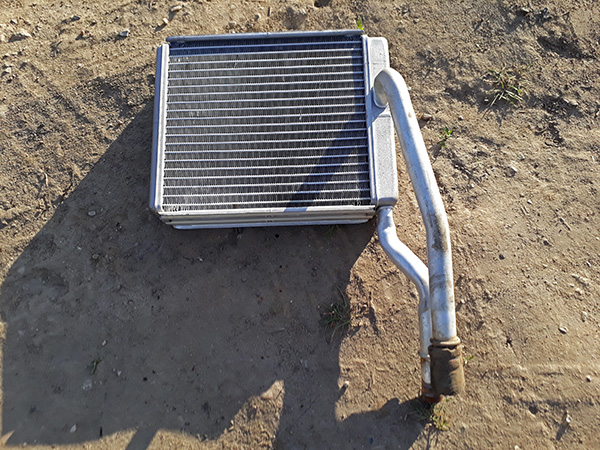
Nothing is more uncomfortable than being stuck in a freezing car without heat during the colder months. Your car’s heater is essential for comfort, defrosting the windows, and ensuring safe visibility on frosty mornings. So, what could cause the heater to stop working? Let's look at some common issues and find out how to address them. How Your Car Heater Works Before diving into potential issues, it helps to know how the system operates. A car heater pulls heat from the engine’s coolant system. As the engine runs, the coolant absorbs heat and circulates it through the heater core—a small radiator-like component. A fan then blows this warm air into your cabin. Sounds straightforward, right? Well, a fault anywhere in this chain can leave you shivering. Low Coolant Levels Low coolant levels are among the most common reasons for a malfunctioning heater. Since the heater relies on hot coolant to generate warm air, insufficient leve ... read more
Posted on 11/29/2024
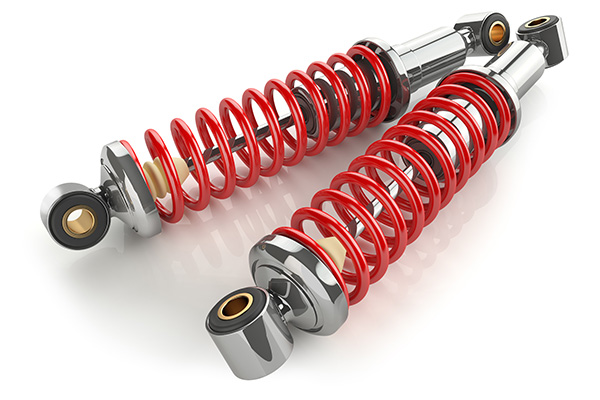
When it comes to car safety, we often think about airbags, brakes, or seat belts. But have you ever considered the role of your car’s suspension system, specifically the shock absorbers? Shock absorbers keep your vehicle stable and safe on the road. If they’re worn out, they could be silently compromising your car’s safety, handling, and overall performance. Let’s see how worn shock absorbers can impact your driving experience and why keeping them in good condition is necessary. The Importance of Shock Absorbers in Your Vehicle Shock absorbers are essential components of your car’s suspension system. Their main job is to control the rebound and compression of your car's springs, ensuring a smooth and stable ride. By absorbing the energy from bumps, potholes, and uneven road surfaces, shock absorbers help maintain tire contact with the road. This not only m ... read more
Posted on 10/31/2024
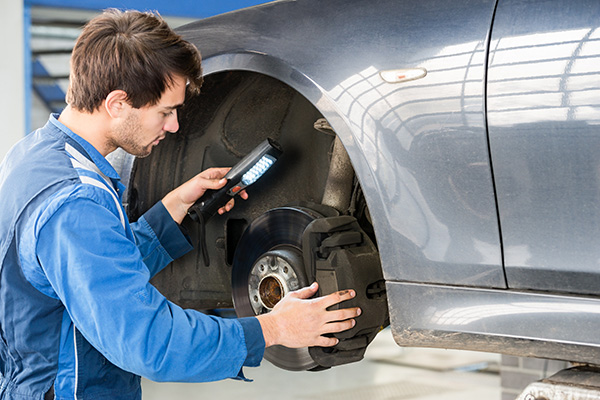
Your car’s brakes are one of the most important components when it comes to safety. Whether making short stops around town or going on long road trips, functioning brakes are essential. But how often should you get them inspected? Why Brake Inspections Are Necessary Your brakes work hard every time you drive, wearing down over time. An unnoticed issue with your braking system can lead to serious consequences, including a dangerous reduction in stopping power. Regular brake inspections ensure that everything is working correctly, helping you avoid accidents and costly repairs. More importantly, they give you peace of mind knowing your vehicle is safe to drive. Brake inspections typically check the condition of your brake pads, rotors, calipers, and fluid levels. These components can wear down or become less effective over time, and identifying issues early helps you address them before they become more serious problems. How Often Should You Get Your Br ... read more
Posted on 9/27/2024
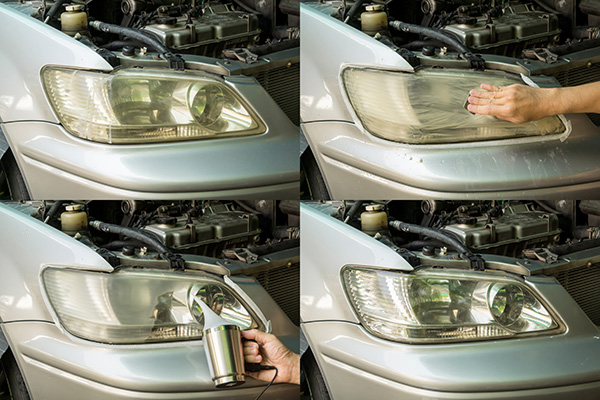
Have you noticed your car’s headlights turning cloudy or hazy over time? It’s frustrating, especially when you realize that dim or foggy headlights make your vehicle look worn out and reduce visibility at night. If you've been wondering why this happens and how professional restoration can bring your headlights back to life, you’ve come to the right place. What Causes Headlights to Become Cloudy? Headlights are exposed to the elements constantly, and over time, they can lose their clarity. While they may have started out bright and clear, various factors can contribute to their cloudiness. One of the main reasons headlights become foggy is due to UV exposure. Modern headlights are made of polycarbonate plastic, which is strong and durable, but not immune to the sun’s ultraviolet (UV) rays. Over time, these rays break down the protective coating on the surface, leading to oxidation. The result? A cloudy, yellowish film that reduces the eff ... read more
Posted on 8/30/2024
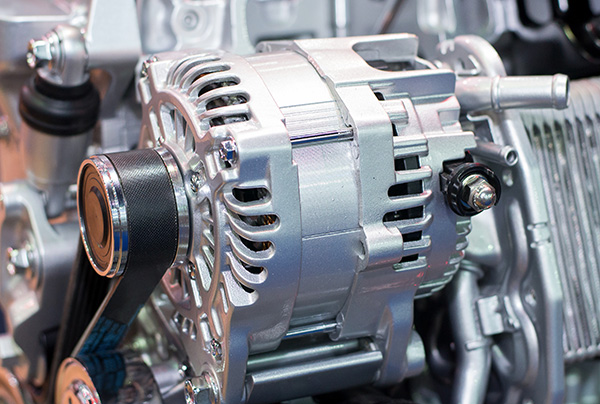
Is your car acting up with misfires or stalling unexpectedly? You might immediately suspect the fuel system or spark plugs, but have you considered the alternator? While it may seem like an unlikely culprit, a failing alternator can indeed cause your engine to misfire and stall. Let's dive into how this crucial component affects your vehicle's performance and what signs you should look out for. Тhe Role of the Alternator The alternator is an essential part of your car's electrical system. It works by converting mechanical energy from the engine into electrical energy to power various components, including the battery, lights, and electronic systems. Essentially, it keeps your battery charged and ensures that all electrical functions operate smoothly. When the alternator starts to fail, it can't supply enough power, leading to a domino effect of problems within your vehicle. How a Failing Alternator Leads to Misfires You might wonder ... read more
Posted on 7/26/2024
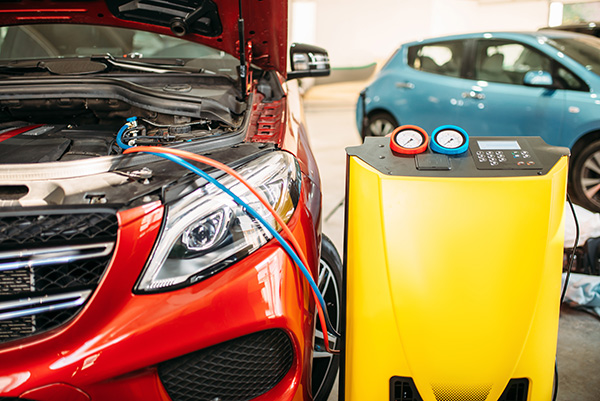
When the summer heat hits, having a reliable air conditioning (A/C) system in your car is just as important as the one in your home. However, many people find that their car’s A/C system tends to leak more frequently than their home A/C. But why is this the case? Understanding the differences between these systems and the unique challenges faced by car A/C units can help you prevent leaks and keep your car cool all summer long. The Basics of Car and Home A/C Systems Both car and home A/C systems work on the same basic principle. They remove heat from the interior and release it outside, thereby cooling the air inside. However, there are significant differences in their designs and operational environments. Home A/C systems are stationary, usually installed in a stable environment, and are designed to handle large, constant cooling loads. Car A/C systems, on the other hand, are compact, mobile, and subject to mechanical stress and environmental conditions ... read more
Posted on 6/28/2024
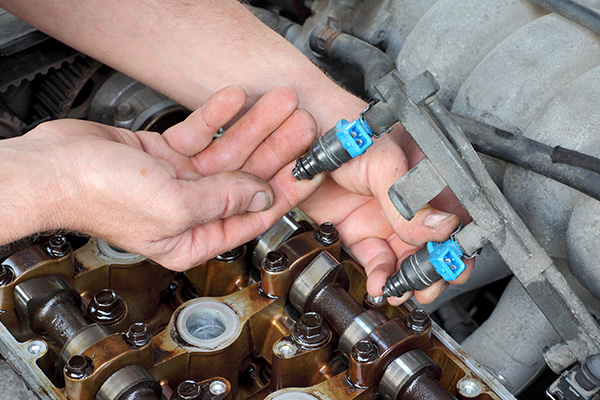
Are you experiencing rough idling, poor acceleration, or decreased fuel efficiency? These could be signs of clogged fuel injectors. Understanding the symptoms and how to address them can save you from headaches and costly repairs. We'll share some telltale signs of clogged fuel injectors and provide practical solutions to get your vehicle back in top shape. The Fuel Injectors Fuel injectors play a crucial role in your vehicle's engine by delivering precise amounts of fuel into the combustion chamber. They ensure that the fuel is mixed with air at the right ratio for optimal combustion. Over time, however, fuel injectors can become clogged with deposits, hindering their performance and affecting your car's overall efficiency. Common Signs of Clogged Fuel Injectors Recognizing the symptoms of clogged fuel injectors early can prevent further damage to your engine. Here are some of the most common signs to watch out for: 1. Rough I ... read more
Posted on 5/28/2024

Houston, Texas, is known for its bustling highways and heavy traffic, which can often lead to stress and anxiety for drivers. However, with the right strategies and mindset, navigating through the congestion can be a safer and more manageable experience. We will share some essential safety tips to help you stay calm and composed while driving in Houston's busy traffic. Plan Ahead to Avoid Rush Hour One of the most effective ways to minimize stress on the road is by planning your commute ahead of time. Check traffic updates and consider leaving a few minutes earlier or later to avoid peak congestion times. By planning your route strategically, you can reduce the likelihood of getting stuck in bumper-to-bumper traffic. Maintain a Safe Following Distance In heavy traffic conditions, it's crucial to maintain a safe distance between your vehicle and the one in front of you. This provides adequate reaction time in case of sudden stops or slowdown ... read more
Posted on 4/27/2024
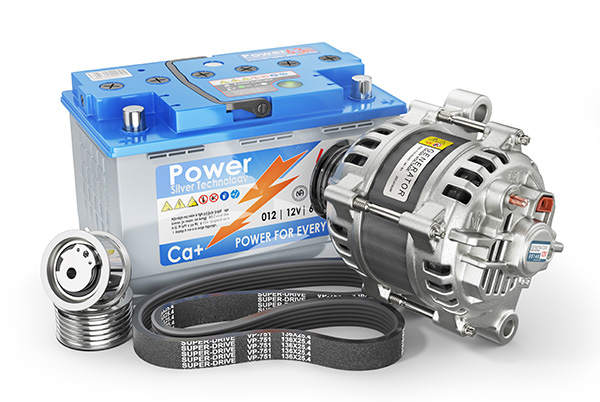
The alternator, often referred to as the heart's support of your vehicle's electrical system, plays a critical role in keeping your car running smoothly. While it may seem like a small component, its function is indispensable. Why is it so significant, and what practical steps can you take to prevent breakdowns and ensure your vehicle's longevity? What is The Alternator The alternator is a generator that converts mechanical energy from the engine into electrical energy. Its primary function is to charge the battery while the engine is running and power electrical components, such as lights, radio, and air conditioning. Without a functioning alternator, your vehicle's battery would quickly drain, resulting in a stalled engine and electrical failure. Signs of Alternator Trouble Apprehending the warning signs of alternator failure is crucial fo ... read more
Posted on 3/29/2024
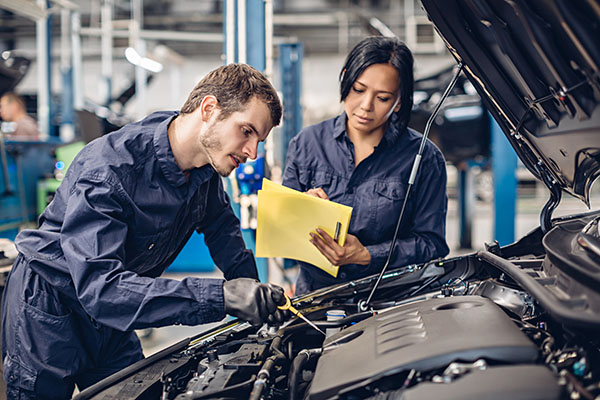
Your car's battery is often the unsung hero, silently powering your vehicle's electrical systems day in and day out. But what happens when this vital component begins to falter? 1. Diminished Cranking Power One of the most obvious signs of a failing battery is difficulty starting your vehicle. If you notice your engine turning over slowly or struggling to start, it could be a sign that your battery is losing its cranking power. This could indicate that the battery is nearing the end of its lifespan and may need to be replaced soon. 2. Weak or Flickering Lights Your car's battery is responsible for providing power to the lights, both inside and outside of your vehicle. If you notice that your headlights, interior lights, or dashboard lights appear dimmer than usual or flicker intermittently, it could be a sign of a failing batter ... read more